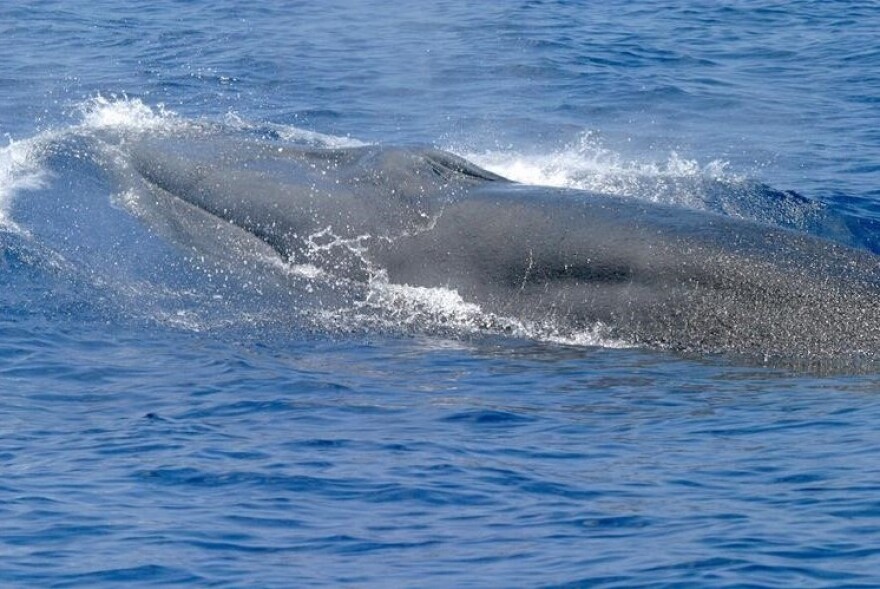A lawsuit has been filed to force the federal government to protect endangered Rice's whales in the Gulf. Scientists believe there are fewer than 50 remaining.
Federal regulators recently released a "biological opinion" that found strikes by oil tankers and vessels in the Gulf's well fields are likely to threaten the existence of Rice's whales.
The lawsuit is asking for stronger restrictions on speeds and for ships to keep at least 500 yards from visible whales.
ALSO READ: Restrictions on ship speeds removed in endangered Rice’s whales' Gulf habitat
NOAA Fisheries Service estimates that nine Rice’s whales would be killed and three seriously injured over the next 45 years. Chris Eaton, an attorney with the environmental group Earthjustice, said that might doom the species.
"The Fisheries Service has said because the population is so low that if just one female dies, that could send the species to extinction," Eaton said. "And the problem with this biological opinion is that it recognizes that risk, but doesn't provide adequate measures to prevent that risk to those species."
The Department of the Interior can lease areas of the Gulf to oil and gas drillers. But first, the Fisheries Service must study how endangered species are likely to be harmed.
NOAA Fisheries said the proposed rule would make lethal vessel strikes “extremely unlikely to occur."

Eaton said the possibility of another major oil spill like the 2010 Deepwater Horizon spill in the Gulf could seal their fate. Environmentalists estimated that one out of every five whales was killed or seriously harmed by the 2010 spill.
"The Fisheries Service disregards the risk of a catastrophic oil spill like Deepwater Horizon. That's what they did in 2007, just three years before Deepwater Horizon happened, and they continued to ignore that risk," Eaton said.
ALSO READ: Restrictions on ship speeds removed in endangered Rice’s whales' Gulf habitat
Industry groups have said that further restrictions could threaten oil and gas operations in the western Gulf.
“We are concerned by the inclusion of a jeopardy finding for the Rice’s whale,” National Ocean Industries Association President Erik Milito said in a statement. “That determination appears inconsistent with the best available science and triggers unnecessary regulatory uncertainty.”
The oil industry group Energy Workforce & Technology Council lauded the new proposals.
"By reinstating a clear and science-based framework, the updated opinion ensures that offshore development can move forward without the unnecessary possibility of disruption," the group said in a prepared statement.
“The release of this updated Biological Opinion is a major step forward for American energy security. This action ensures that Gulf operators can continue producing reliable, affordable energy under a stable regulatory framework. It protects American jobs, strengthens national security, and reinforces the strategic importance of the Gulf of America in our energy portfolio," the statement continued.
In response, Eaton said that they recognize changing speed limits would be a change in operations, but believe the companies can plan accordingly for that.
"The vessel restrictions would not be the entire Gulf. It's a relatively narrow band where these whales live, 100 to 400 meters deep," Eaton said. "I think the concerns about impacts are overblown, and on the flip side of the ledger is the first human-caused extinction of a great whale. And so I think we need to balance those considerations."
Earthjustice filed the lawsuit on behalf of the Sierra Club, the Center for Biological Diversity, Friends of the Earth and the Turtle Island Restoration Network.
The lawsuit said oil and gas explorations could also threaten five of the world’s seven sea turtle species — loggerheads, leatherbacks, hawksbills, Kemp’s ridleys and green sea turtles.




